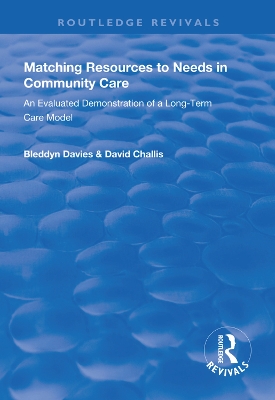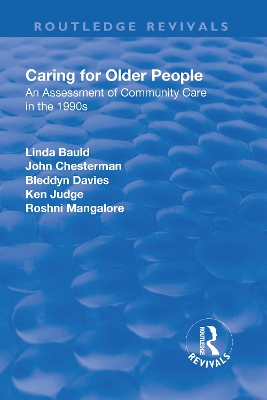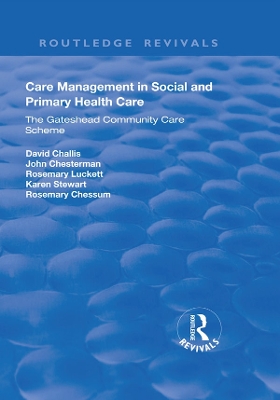Routledge Revivals
3 total works
Matching Resources to Needs in Community Care
by Bleddyn Davies and David Challis
First published in 1986, Matching Resources to Needs describes the PSSRU’s community care approach and analyses the first of the community care projects, a seminal set of experiments in the care of the elderly at high risk of institutional long-term care. The experiments create field structures which provide incentives to improve efficiency, decentralised power over resources being balanced by enhanced accountability. The first part explains the approach, analyses the causes of inefficiency in ~British social care, and reviews British and American evidence about the relationships between resources, recipient characteristics and outcomes. The approach is compared with some two dozen American experiments hitherto unknown in the UK. It describes the design of the project and its evaluation. The authors then examine the experimental results. They show that cost and welfare effects are better and the costs of outcomes are lower for recipients of community car. The third part of the book uses observational and other data to explore the relationships between structures, assumptive worlds, causal processes and outcomes and their costs. It also analyses the performance of the core tasks of entrepreneurial case management for types of case. The book concludes with a discussion of the broader implications of this approach to community care.
Caring for Older People
by Linda Bauld, John Chesterman, Bleddyn Davies, and Ken Judge
This title was first published in 2000: Caring for Older People provides a unique insight into the world of community care in the 1990’s. It presents findings from a national study of social care from the perspectives of older service users, their carers and care managers. Descriptive findings from this longitudinal study - conducted by the PSSRU from 1994 and funded by the Department of Health - are set in the context of the history of community care and developments since the passage of the 1990 NHS and Community Care Act. The study’s findings highlight important challenges for policy and practice development in the new millennium.


